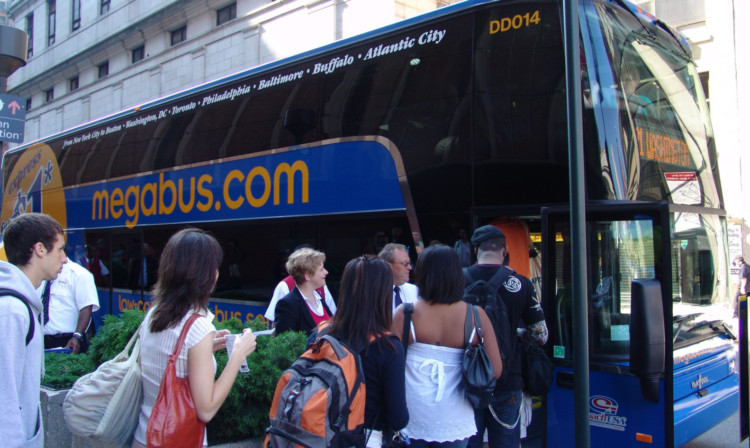Perth bus firm Stagecoach hailed soaring sales in the United States, after its megabus.com business posted a revenue hike of more than 20% during the three months to the end of July.
A trading statement from the transport group said its North American venture was the fastest-growing part of its operations, with passengers continuing to climb aboard an expanding Stateside network.
It trumpeted the contribution made by recently-launched services in Texas and California, and foretold of a “very significant step up” in operating profits expected from the division at the year end.
Shares in the group climbed following the upbeat update, closing the day up at 327.80.
Stagecoach’s success in the US comes in sharp contrast to the reverses experienced by north east rival First, which faces debts of around £2 billion after snapping up poorly-performing school bus operations on the other side of the Atlantic.
The group also revealed that its Virgin Rail joint venture is in discussion with the Department for Transport (DfT) over revised commercial terms for its continuing operation of the West Coast Main Line following last year’s franchise mayhem.
Last year’s fiasco saw the route awarded to FirstGroup but failures in the tendering process saw the deal given back to Virgin.
The DfT was then forced to strike a deal with Virgin, allowing it to earn a fee equivalent to 1% of revenues in exchange for running the line.
Virgin is now discussing the variation of those terms with the DfT, with the prospect of the train operator taking great revenues and cost risks over the three-and-a-half years to April 2017 “for a commensurate financial return”.
Stagecoach is also talking to DfT officials about planned extensions to South Western and East Midlands Trains franchises, while news on bids to run the Thameslink and Docklands Light Railway franchises are expected early next year.
Its standalone rail businesses were in-line, though the rate of revenue growth slowed later in the period when compared to the equivalent figures during last year’s London 2012 Olympic and Paralympic Games.
Stagecoach saw revenue increases of between 4.5% and 6.5% across its UK bus and rail arms, in North America as a whole, and through its operations under the joint Virgin Rail brand during the first quarter.
There was a minor 0.6% reverse in its London bus division, although Stagecoach stressed there was better to come in the second half as the impact of nine new contracts won during the last financial year began to kick in.
It said the business had “continued to perform well”, but would manage costs carefully so it could compete for fresh deals.
Regional operations, which include Stagecoach East Coast, “performed strongly” during the early part of the year, with the company attributing increasing passenger volumes to better weather and the most significant growth achieved in non-concessionary adult travel.
Sightseeing revenues from the group’s Twin America joint venture fell, thanks to an increasingly competitive tourism market in New York.
“The overall profitability of the group has remained satisfactory, and there has been no significant change to our expected adjusted earnings per share for the year ending 30 April 2014,” Stagecoach said.
